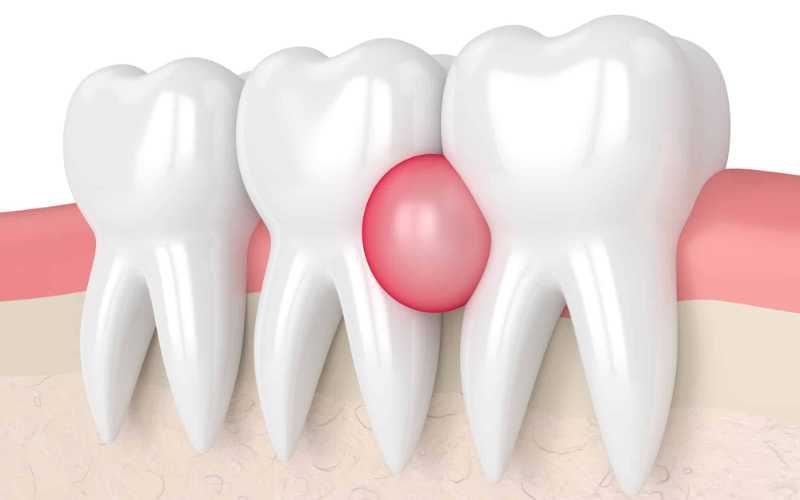Dental Abscess: Why Ignoring It Can Lead To A Serious Emergency

A dental abscess is one of the most painful and potentially dangerous dental issues a person can experience. Often beginning as a minor tooth infection or decay, a dental abscess can quickly escalate into a serious emergency if left untreated.
The abscess is essentially a pocket of pus caused by bacterial infection, and while it may seem like a simple inconvenience, ignoring it can lead to severe complications, including infections spreading to other parts of the body, hospitalization, and in rare cases, life-threatening conditions.
In this blog, we will explore what a dental abscess is, its causes and symptoms, and most importantly, why it’s critical to seek treatment immediately.
What Is a Dental Abscess?
A dental abscess occurs when a bacterial infection causes a collection of pus to form in or around the tooth. There are three primary types of dental abscesses:
- Periapical Abscess: Occurs at the tip of the tooth’s root and is often caused by untreated tooth decay.
- Periodontal Abscess: Develops in the gums around the tooth, usually due to severe gum disease or injury.
- Gingival Abscess: Occurs in the gum tissue without affecting the tooth or bone.
While all types of abscesses are painful and require immediate attention, periapical abscesses are the most common.
Know Its Causes
A dental abscess is caused by bacterial infection, which can occur for a variety of reasons, including:
- Untreated Tooth Decay: Cavities that are not treated can extend into the pulp of the tooth, leading to infection.
- Gum Disease: Advanced gum disease, known as periodontitis, can cause infection in the gums and the bone supporting the teeth.
- Dental Trauma: A cracked or broken tooth can allow bacteria to enter the tooth’s pulp, leading to infection.
- Poor Oral Hygiene: Neglecting to brush and floss regularly can lead to the buildup of bacteria, which can result in infections and abscesses.
- Weakened Immune System: Conditions that weaken the immune system, such as diabetes or autoimmune diseases, can make it easier for infections to take hold.
Symptoms
Dental abscesses can present with a variety of symptoms, some of which may indicate that the infection has progressed. These symptoms include:
- Severe Tooth Pain: The pain from a dental abscess is often throbbing and intense, and it may worsen when biting down or chewing.
- Swelling of the Gums or Face: As the infection spreads, swelling can occur in the gums, jaw, and even the face.
- Foul Taste in the Mouth: The abscess may occasionally rupture, causing a sudden, foul-tasting fluid to drain into your mouth.
- Sensitivity to Hot and Cold: Affected teeth may become extremely sensitive to temperature changes.
- Difficulty Swallowing or Breathing: In severe cases, the infection can spread, causing swelling that makes it difficult to swallow or breathe.
- Fever: A fever may accompany the infection, signaling that the body is trying to fight it off.
If you go through any of these symptoms, it’s essential to see a dentist immediately to avoid more serious complications.
How Ignoring a Dental Abscess Can Lead to a Serious Emergency
Ignoring a dental abscess may seem tempting, especially if the pain temporarily subsides after the abscess ruptures. However, leaving it untreated can lead to severe health complications, some of which can be life-threatening. Here are the reasons why prompt treatment is essential:
1. Infection Can Spread To Other Parts of the Body
One of the biggest dangers of an untreated dental abscess is the risk of the infection spreading to other parts of the body. The bacteria from the abscess can enter the bloodstream, leading to a condition called sepsis, which is a life-threatening systemic infection. The infection can also spread to the:
- Jawbone (Osteomyelitis): Infection of the jawbone can result in bone destruction and require surgery.
- Sinuses (Sinusitis): The infection can spread to the sinuses, leading to chronic sinus infections.
- Neck or Chest (Ludwig’s Angina): If the infection spreads to the tissues in the neck or chest, it can cause swelling that makes breathing difficult and may require emergency surgery.
2. Tooth Loss and Damage
Without prompt treatment, the abscess can cause irreversible damage to the affected tooth, leading to tooth loss. Additionally, nearby teeth may also be affected, requiring extractions or extensive dental work.
3. Hospitalization and Emergency Surgery
As the infection progresses, it may reach a point where outpatient dental treatment is no longer sufficient. In such cases, hospitalization and emergency surgery may be required to drain the abscess and remove infected tissue. This can significantly increase the treatment time, cost, and risks to your overall health.
4. Airway Obstruction
In severe cases, the infection and swelling can obstruct the airway and make it difficult to breathe. This is a medical emergency and requires immediate intervention. Delaying treatment can result in life-threatening complications such as respiratory failure.
5. Permanent Facial Deformities
If the infection spreads to surrounding bone and tissues, it may cause permanent damage, including facial deformities that require reconstructive surgery.
Treating a Dental Abscess
If you suspect you have a dental abscess, it’s important to seek treatment right away. Treatment typically involves:
- Draining the Abscess: Your dentist may need to drain the pus from the abscess by making a small incision.
- Root Canal Therapy: For a periapical abscess, root canal therapy may be needed to remove the infected pulp and save the tooth.
- Tooth Extraction: In severe cases, the tooth may need to be removed to prevent the infection from spreading.
- Antibiotics: Antibiotics may be prescribed to help clear the infection, especially if it has started to spread.
- Pain Management: Over-the-counter pain medications can help manage discomfort while you wait for treatment, but they do not cure the infection.
Preventing a Dental Abscess
The best way to avoid a dental abscess is to practice good oral hygiene and visit your dentist regularly. Here are some tips to prevent an abscess from developing:
- Brush your teeth twice daily with fluoride toothpaste.
- Floss daily to remove plaque from between the teeth and gums.
- Avoid sugary foods and drinks that can contribute to tooth decay.
- Visit your dentist every six months for checkups and cleanings.
- Address cavities, gum disease, or tooth injuries as soon as they occur.
A dental abscess is not something to take lightly. While it may start as a mild toothache or gum swelling, ignoring it can lead to severe health complications, including the spread of infection, tooth loss, and even life-threatening emergencies.
If you suspect you have a dental abscess, it’s crucial to seek prompt treatment from your dentist. Early intervention can save your teeth, prevent more serious complications, and ultimately protect your overall health.
Don’t wait for the pain to become unbearable—get the help you need before it turns into a serious emergency.







